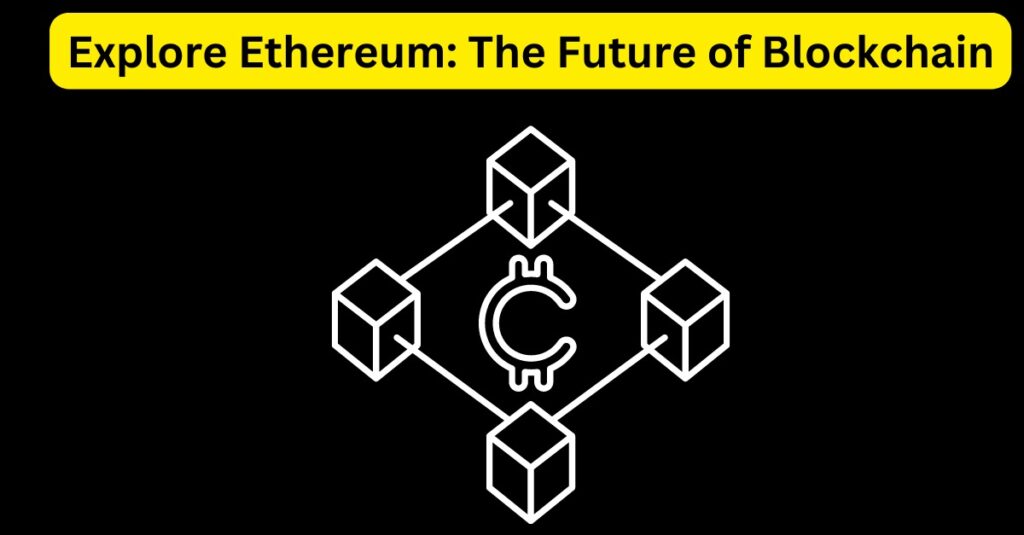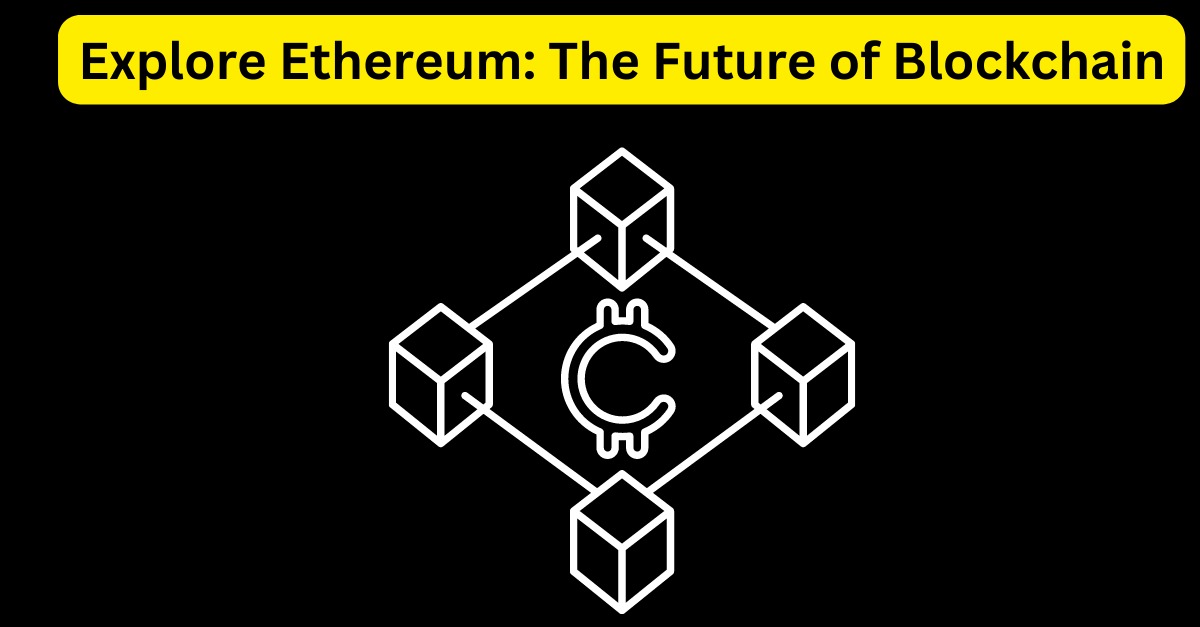Explore Ethereum: The Future of Blockchain

One such prominent blockchain platform is Ethereum, which has gained significant attention due to its innovative features and potential applications. In this article, we will delve into Ethereum, exploring its origins, key components, advantages, and its potential to shape the future of blockchain technology.
1. What is Ethereum?
Ethereum is a decentralized blockchain platform that enables the development and execution of smart contracts and decentralized applications (DApps). It was created by Vitalik Buterin, a prominent figure in the blockchain space, with the goal of providing a versatile platform for building decentralized applications beyond the limitations of Bitcoin.
2. The Birth of Ethereum
Ethereum’s journey began in late 2013 when Vitalik Buterin published the Ethereum whitepaper. The whitepaper outlined the vision and technical specifications for a platform that would support advanced scripting capabilities and enable the creation of smart contracts.
3. Ethereum vs. Bitcoin
While Bitcoin and Ethereum are both blockchain-based platforms, they serve different purposes. Bitcoin primarily functions as a digital currency, whereas Ethereum focuses on enabling the development of decentralized applications through its smart contract functionality. Ethereum’s programmability and flexibility make it a powerful platform for innovation.
4. Understanding Smart Contracts
These contracts automatically enforce the agreed-upon rules and conditions, removing the need for intermediaries. Ethereum’s smart contract functionality has opened up new possibilities in various industries, including finance, supply chain management, and more.
5. The Ethereum Virtual Machine (EVM)
It provides a sandboxed environment where developers can deploy and run their applications without worrying about the underlying infrastructure. The EVM ensures the security and integrity of the decentralized applications running on Ethereum.
6. Ether (ETH) – The Native Cryptocurrency
It serves as a means of value exchange and is used to pay for transaction fees and computational services on the network. Additionally, ETH plays a vital role in decentralized finance (DeFi) applications, where it can be staked, lent, borrowed, or used as collateral.
7. Decentralized Applications (DApps) on Ethereum
Decentralized applications, or DApps, are applications that run on the Ethereum blockchain and leverage its decentralized architecture. These applications offer various functionalities, including financial services, gaming, governance, and more. DApps on Ethereum provide users with increased transparency, security, and control over their data.
8. Ethereum 2.0 and Proof-of-Stake (PoS)
Ethereum is undergoing a major upgrade known as Ethereum 2.0, which aims to address scalability and energy efficiency concerns. One of the key changes is the transition from the current Proof-of-Work (PoW) consensus mechanism to Proof-of-Stake (PoS). PoS will allow users to stake their Ether and participate in the network’s security and consensus.
9. Scaling Solutions: The Quest for Scalability
As the popularity of Ethereum grows, scalability has become a crucial challenge. Several scaling solutions are being developed to enhance Ethereum’s capacity to process transactions and execute smart contracts. These include layer-two solutions like state channels and sidechains, as well as sharding, which aims to divide the network into smaller parts for increased efficiency.
10. Ethereum’s Impact on Finance and DeFi
Ethereum has revolutionized the financial landscape through decentralized finance (DeFi) applications. DeFi platforms built on Ethereum allow users to access various financial services, including lending, borrowing, yield farming, and decentralized exchanges. These applications offer greater financial inclusion, improved accessibility, and reduced reliance on traditional intermediaries.
Conclusion
Ethereum has emerged as a game-changing blockchain platform, enabling the development of decentralized applications and smart contracts. Its programmability, flexibility, and robust infrastructure have positioned Ethereum at the forefront of blockchain innovation. As we venture into the future, Ethereum’s impact on finance, supply chain management, IoT, and governance is likely to reshape industries and unlock new possibilities.

